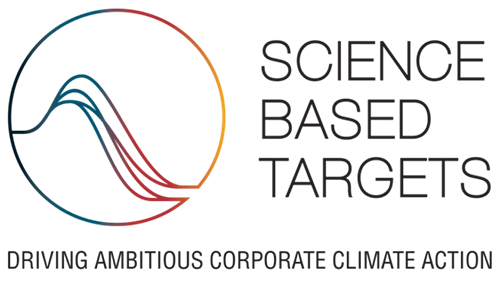Lion Corporation (President: Masayuki Takemori) has had its greenhouse gas (GHG) reduction targets for 2030 validated by the Science Based Targets (SBT) initiative *1 as being based on sound scientific grounds and aligned with the target of limiting global warming to 1.5°C.

To contribute to the realization of a decarbonized, resource-circulating society while pursuing business growth, in 2019 Lion formulated the LION Eco Challenge 2050, a set of long-term environmental objectives for 2050, and has been advancing initiatives accordingly. Under the LION Eco Challenge 2050, Lion aims to reduce CO2 emissions to zero throughout its business activities*2 and reduce CO2 emissions by half throughout the life cycle of its products by 2050.
This validation as being aligned with the target of limiting global warming to 1.5°C follows a previous validation from SBT in 2020 as being aligned with the target of limiting global warming to well below 2°C.
*1. The SBT initiative (SBTi) is a collaborative international initiative established in 2015 by the CDP, the United Nations Global Compact (UNGC), World Resources Institute (WRI) and the World Wide Fund for Nature (WWF). The initiative assesses and validates whether GHG reduction targets set by companies based are properly science-based to help achieve the Paris Agreement goal of keeping the increase in the global average temperature to 1.5°C above pre-industrial levels.
*2. CO2 emissions account for 99.8% of Lion’s GHG emissions (2022 figure).
■Validated GHG Reduction Targets (Targets for 2030)
・Reduce total Scope 1*3 and 2*4 GHG emissions (absolute quantity) by 55% (compared with 2018 levels)
・Reduce Scope 3*5 GHG emissions (absolute quantity) by 30% (compared with 2018 levels)
・Increase annual electricity procurement from renewable sources to 100% (from 0% in 2018)
*3. Scope 1: Direct emissions from the use of fuel by the Company.
*4. Scope 2: Indirect emissions from electricity and heat purchased and used by the Company.
*5. Scope 3: Indirect emissions from the Company’s value chain (excluding those covered by Scope 1 and Scope 2) attributable to purchased goods and services (category 1) or end-of-life treatment of sold products (category 12).
Lion will continue to contribute to the realization of a decarbonized, resource-circulating society by promoting the formation of environmentally friendly habits.
Related information
・The Lion Group’s Initiatives to Address Climate Change:
https://www.lion.co.jp/en/sustainability/env/ecovision2020/#climatechange
・The Lion Group’s Sustainability: https://www.lion.co.jp/en/sustainability/
・The SBT initiative’s website: https://sciencebasedtargets.org/